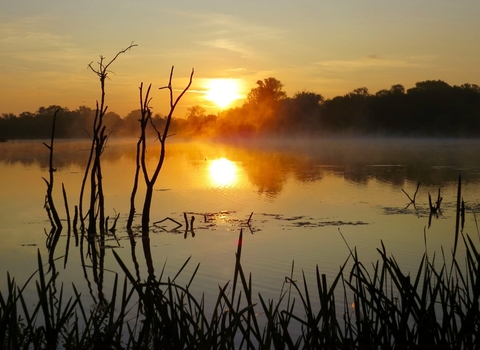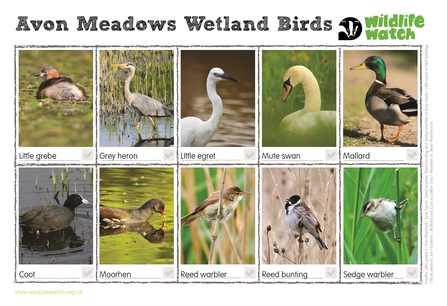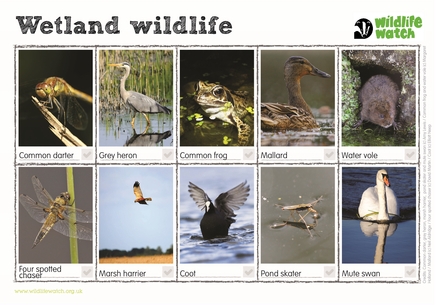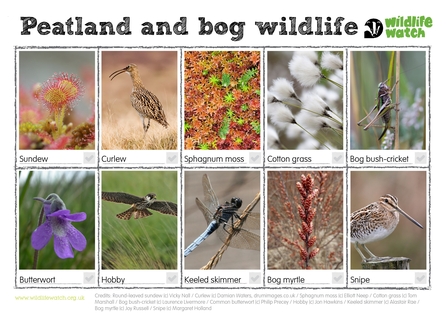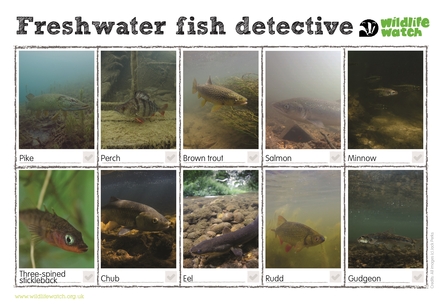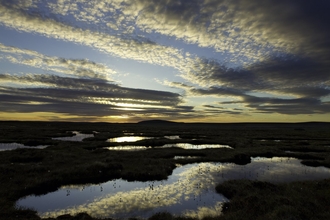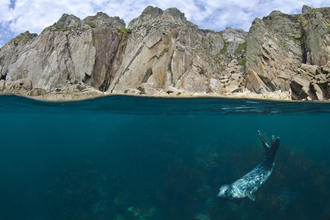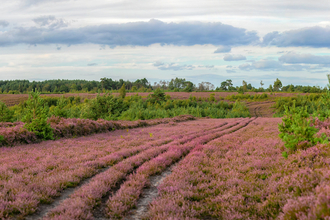Why are wetlands important?
Water and wildlife go together and many of our best areas for wildlife are freshwater wetlands. Huge flocks of birds migrate to the UK’s wetlands in autumn and winter!
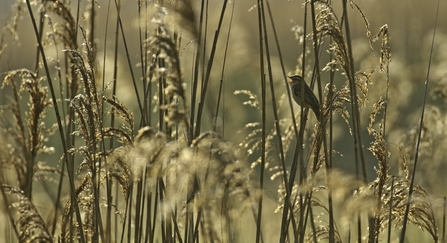
Chris Gomersall/2020VISION
Wetlands have rich soil, great for growing crops. As a result, sadly many wetlands have been drained to create land for farming. This is a problem as wetlands are very important.
- Wetlands store water and can help prevent flooding and droughts
- Peatlands, a type of wetland, can store carbon dioxide from the atmosphere. This helps us to fight against climate change
- Reedbeds naturally clean up polluted water.
The importance of healthy rivers...
Healthy Rivers - Surrey Wildlife Trust (https://vimeo.com/639550820)
Healthy Rivers - Surrey Wildlife Trust
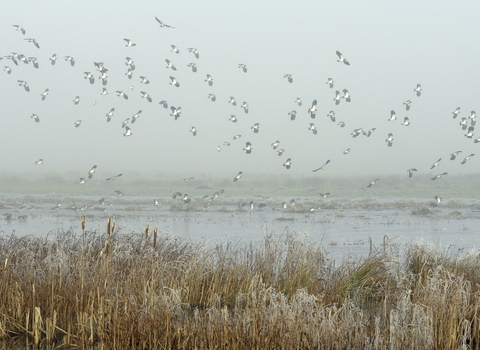
Lapwing flock (Vanellus vanellus) and a few Dunlin (Chalidris alpina) in flight over hoar frosted Bullrushes (Typha latifolia) and coming in to land on flooded, partly frozen marshland on a foggy winter day. Greylake RSPB reserve, Somerset Levels, UK, January. - Nick Upton/2020VISION/naturepl.com
Did you know?
Wetlands range from small ponds and tiny streams to long rivers like the Severn and huge wetlands like the Norfolk Broads.
Wildlife to look out for!
Birds
Freshwater wetlands are an incredible habitat for birds. If you're a birdwatcher, this is the place to go! Some of the birds you can expect to see are ducks like mallards, tufted ducks and shovelers, as well as mute swans, kingfishers, moorhens, coots and much more!!
Download the wetland bird spotter sheet Find out more about herons and egrets
Mammals
Where there's water, there's life! Keep an eye out for otters, water voles, water shrews, Chinese water deer and brown rats.
Download the wetland wildlife spotter sheet Find out about otters
Plants
Water-rich habitats often have lots of beautiful plants, including common reed, bulrush, sedges, rushes, yellow iris, white water lily, pondweeds, water crowfoot, hornwort, water milfoil, duckweeds and angelica.
Download the peatland spotter sheet Find out more about weird plants
Fish
So many species of fish are found in freshwater, as you can imagine! Look out for brown trout, eel, stickleback, minnow, pike, perch and many more.

